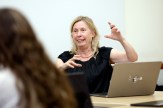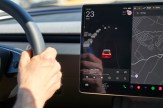US Sen. Edward Markey tells Northeastern students they are leaders in fight against global warming
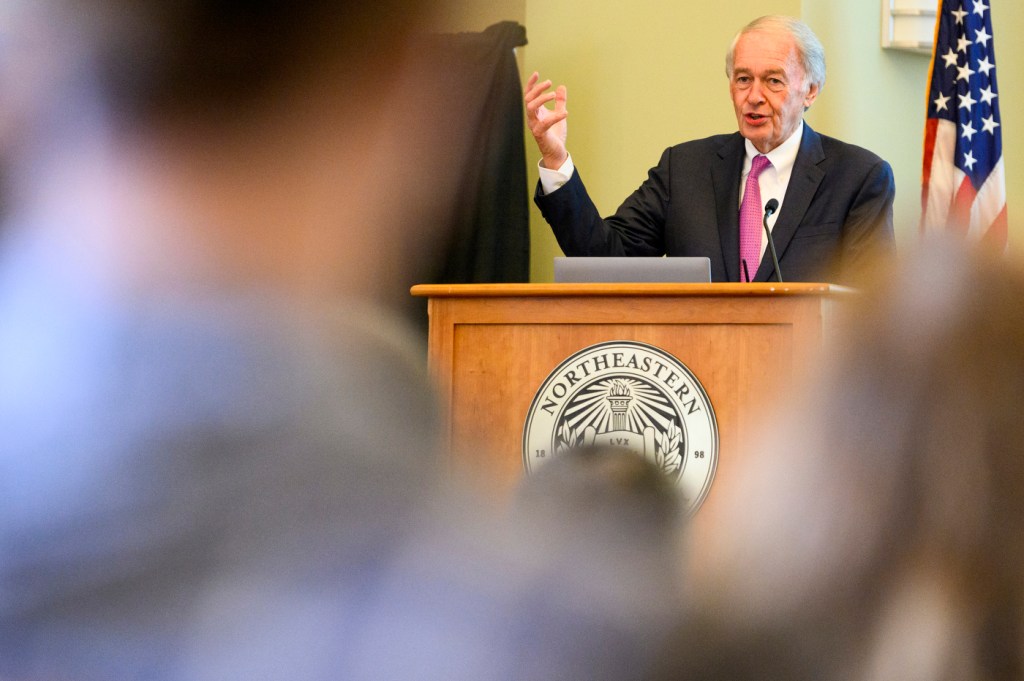
U.S. Sen. Edward Markey Friday told Northeastern University students, faculty and staff they are in the vanguard of a battle the planet cannot afford to lose—the fight against climate change.
Thanks to clean energy and climate investments—part of the Inflation Reduction Act signed in August—they now have plenty of ammunition, he said.
Global warming “poses an existential threat to people all around the world,” said Markey, a Massachusetts Democrat, during an environmental justice conference at the Curry Student Center on Northeastern’s Boston campus.
The climate change legislation will accelerate efforts to restore environmental balance, he said, adding that the $369 billion in funds associated with it will unleash the technological genius of “the smartest young people in the country.”
“The leaders of that revolution are here in this school,” Markey said.
“We can get this done. We’re only just beginning.”
Markey’s speech at the conclusion of the Rising Tide Environmental Justice & Community Engagement conference drew on President John F. Kennedy’s famous moon race speech at Rice University a little over 60 years ago.
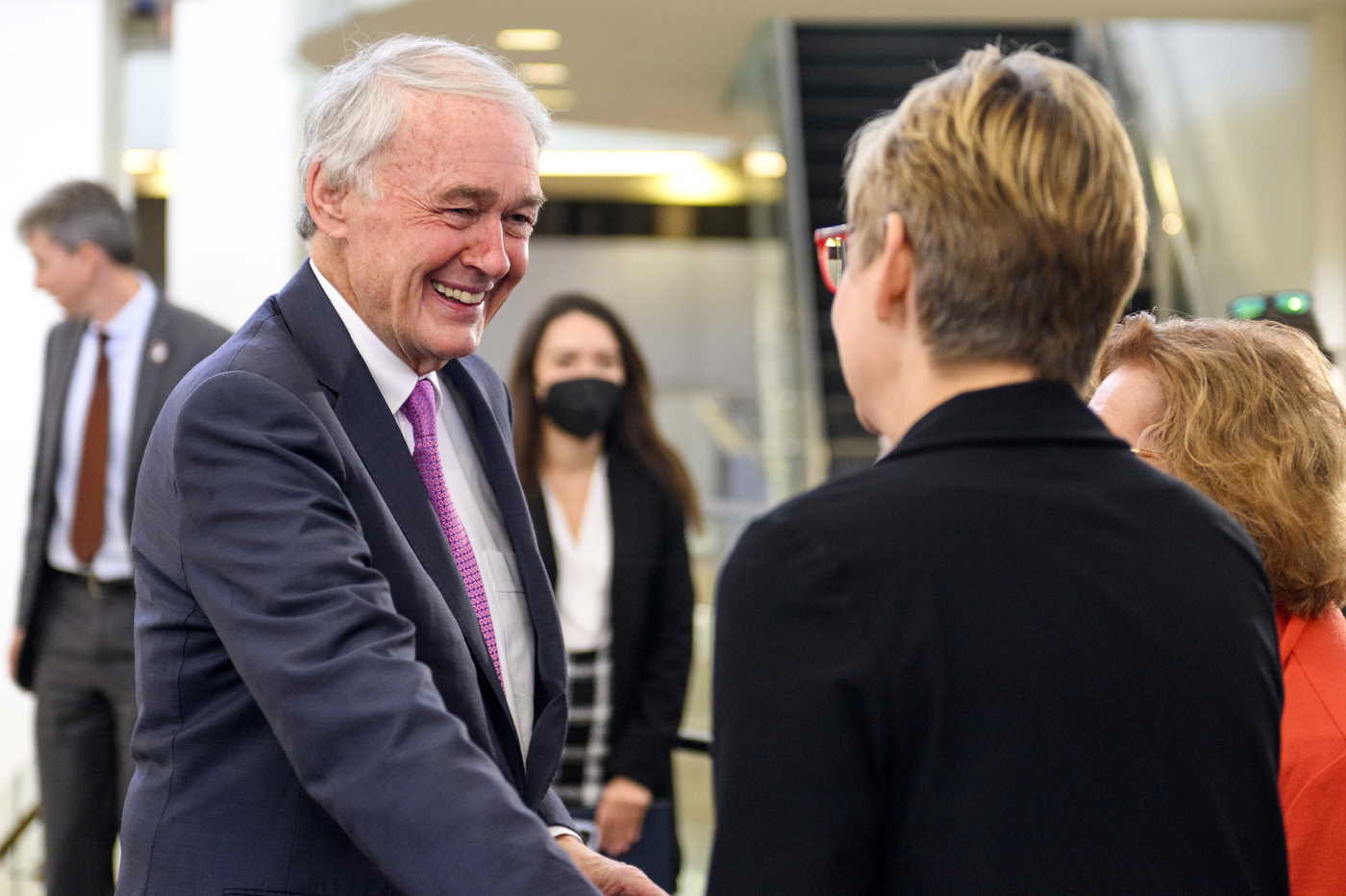
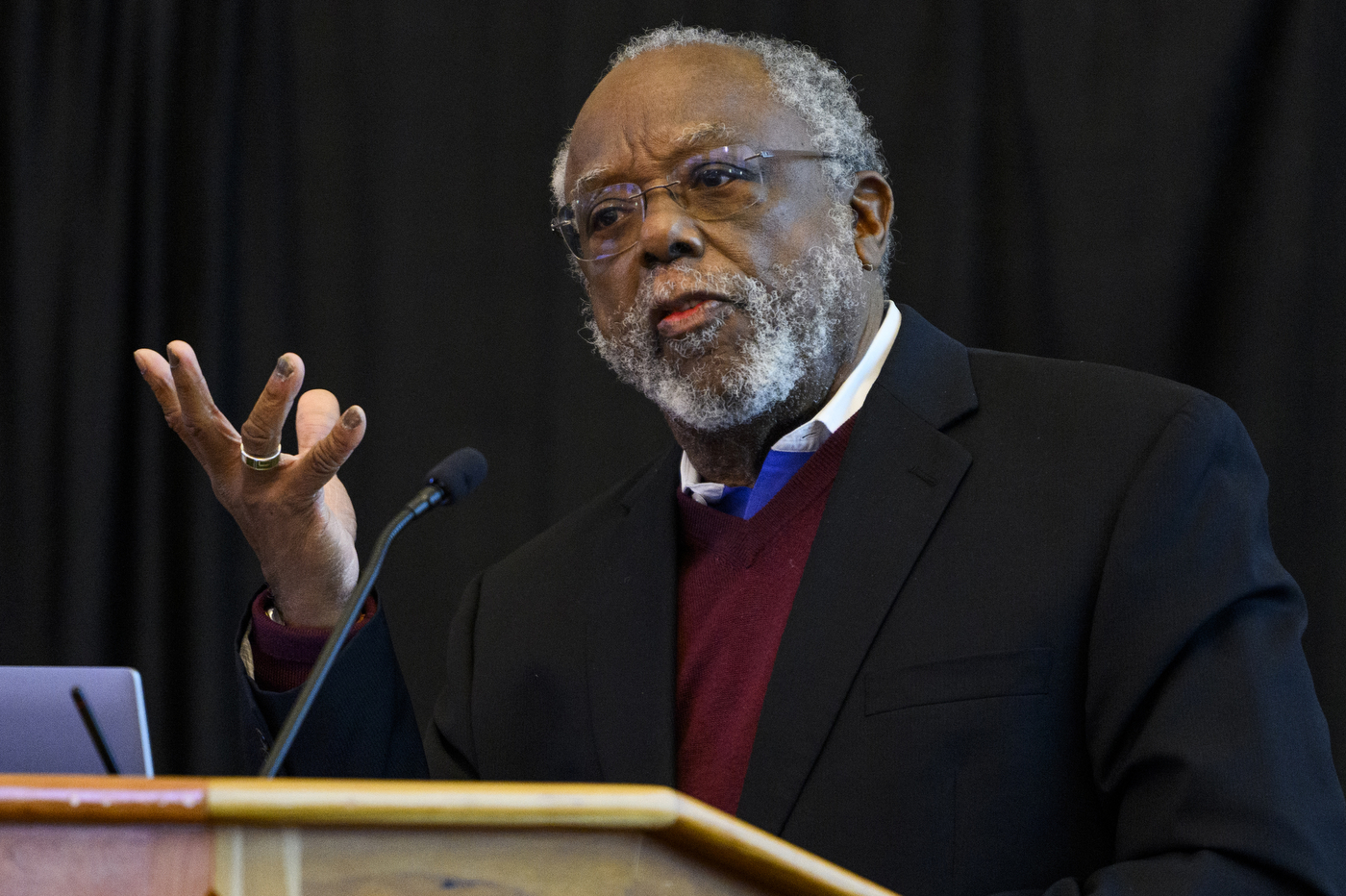
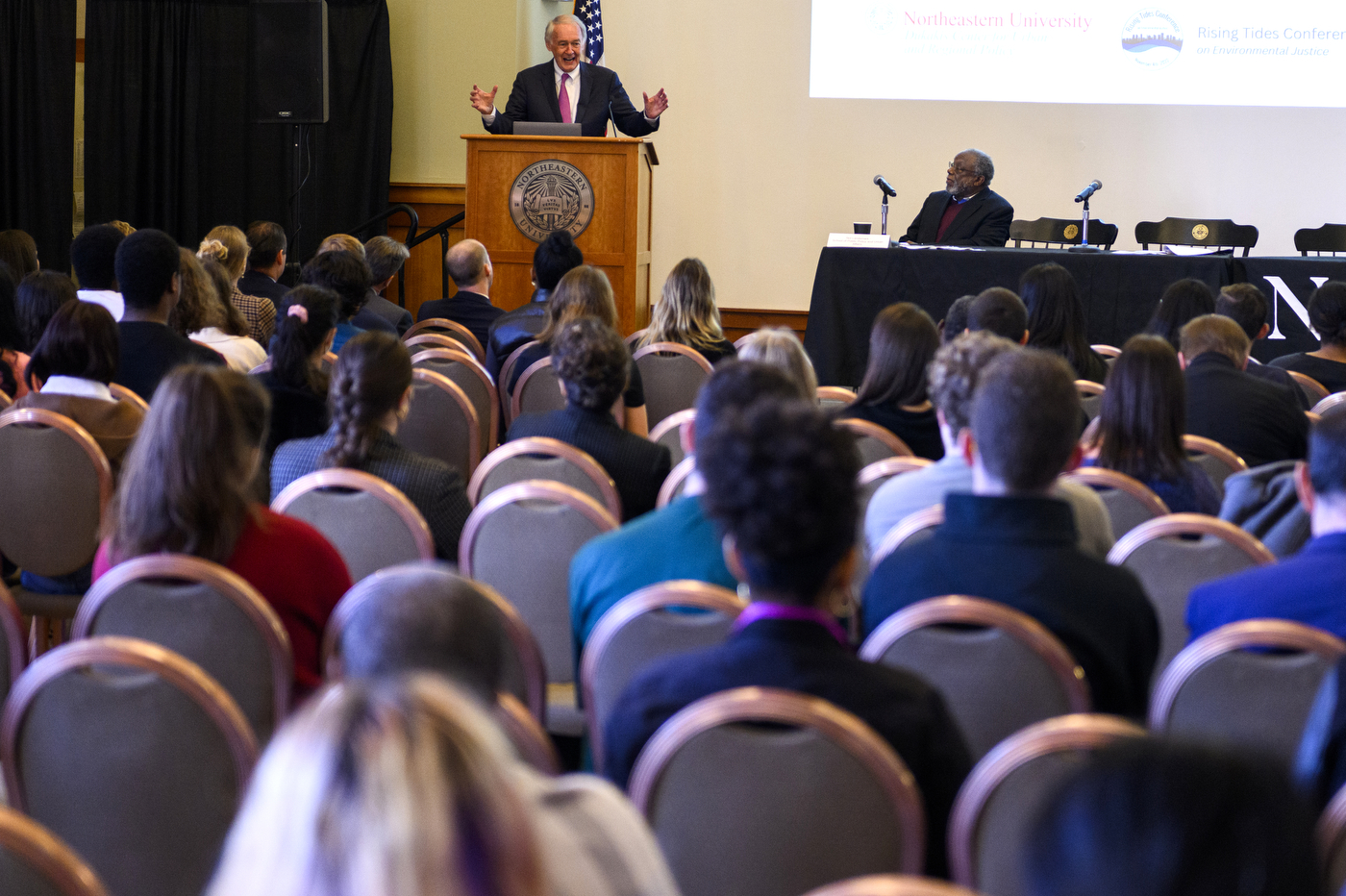
The speech delivered Sept. 12, 1962, called the space race a “great adventure” and drew on Americans’ sense of pride in technological advances. “And no nation which expects to be the leader of other nations can expect to stay behind in this race for space,” Kennedy said.
In a similar vein, Markey said the climate change legislation that he championed with U.S. Rep. Alexandria Ocasio-Cortez, D-New York, is a sign to the world that “the United States is back … and it will make a phenomenal difference.”
“Global warming is manmade. Clean energy will be an America-made solution to this problem,” Markey said.
“The new normal is there is no normal,” Markey said. “This year we had the hottest August ever recorded in North America. And how do you like this November? This is crazy.”
He called the climate change bill signed by President Joe Biden “the most important environmental energy legislation in the history of our country or any country.”
“This bill has the ambition of the moon landing, the moral imperative of the Civil Rights Act and the scope of the Clean Air Act all wrapped into one,” Markey said.
He referred to the developments that will be unleashed as “capitalism with a conscience.”
“We are going to create jobs by the millions and unleash private sector investment by the trillions,” Markey said. He said Credit Suisse estimated the legislation will lead to $1.7 trillion in investments for such things as heat pumps and automotive industry innovations.
Addressing environmental inequities is also part of the legislation, Markey said. He said $60 billion marked for environmental injustice can be used by communities such as Chelsea, South Central Los Angeles and Harlem to deal with their heavier burden of pollution and environmental issues.
Delivering his address four days before the Nov. 8 election, Markey attacked Republicans for failing to have even one of their members in Congress sign the climate change bill and for putting the brakes on the development of alternative sources of energy for decades.
“The GOP really stands for Gas and Oil Party,” Markey said, inviting conference attendees to view “Who Killed the Electric Car,” a 2006 documentary.
The environmental movement created the momentum for the successful passage of the climate change legislation, he said.
“It was a movement of young people who rose up and said they are sick and tired of special interests” stopping a technological revolution that they believe is possible, Markey said.
Conference organizer Theodore C. Landsmark, director of Northeastern’s Dukakis Center for Urban and Regional Policy, said students, faculty and staff will use the conference and Markey’s speech “as a springboard for further engagement with each other and the communities we engage and serve.”
Throughout the conference, panelists talked about climate change as the most confounding issue facing the planet.
“We often come across this resistance. I don’t want to hear about it. It’s depressing,” said Maria Ivanova, director of Northeastern’s School of Public Policy and Urban Affairs in the College of Social Sciences and Humanities.
“How do we get individuals to act? It’s not by scaring them,” she said, adding that it’s by empowering them.
“I really do think people are inspired to solve this issue,” said Northeastern first-year environmental engineering student Mila Popovic.
“Everyone’s very motivated to get things done,” said Sree Vangala, a second-year math and business major.
“I don’t think Northeastern students are the type to say, ‘There’s nothing we can do,’” Vangala said.
Markey appealed to conference attendees’ pride of place by reminding them that 19th century physician and humorist Oliver Wendell Holmes had famously referred to Boston as the hub of the solar system.
“That’s why we call ourselves the hub,” Markey said, adding that it is time for Massachusetts to take the lead again.
It’s not just the Bay State, he said. “It’s the brain state.”
“You guys have to go and get them.”
For media inquiries, please contact media@northeastern.edu.


